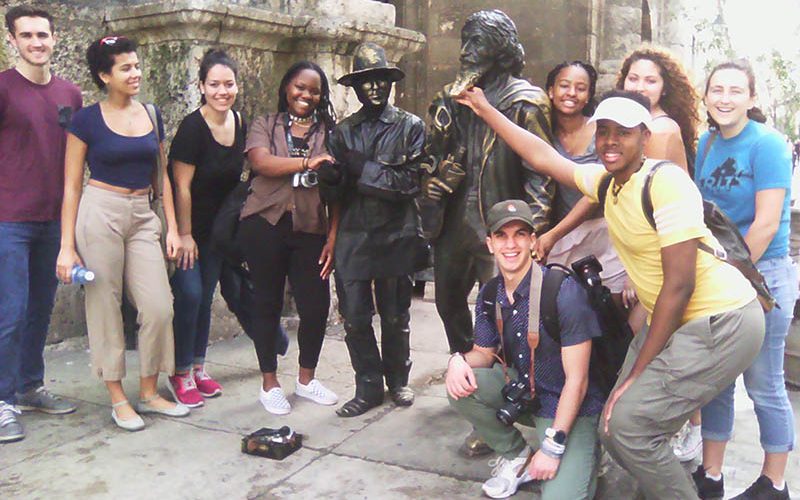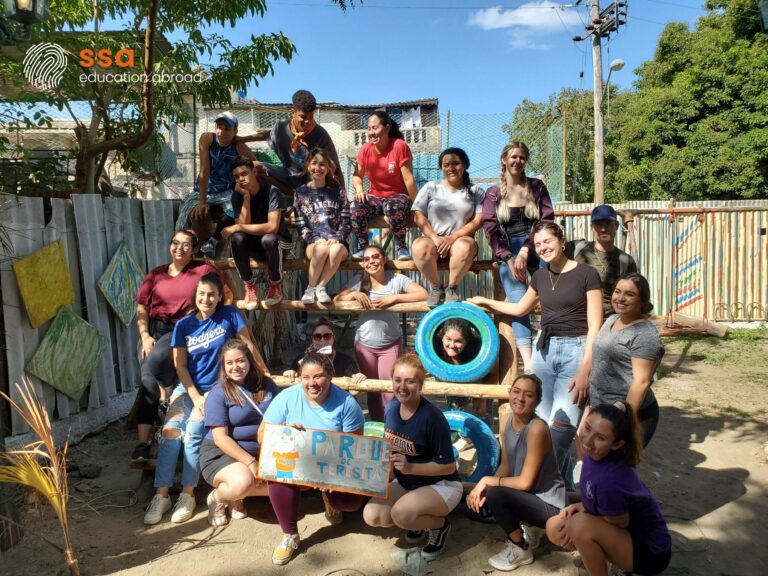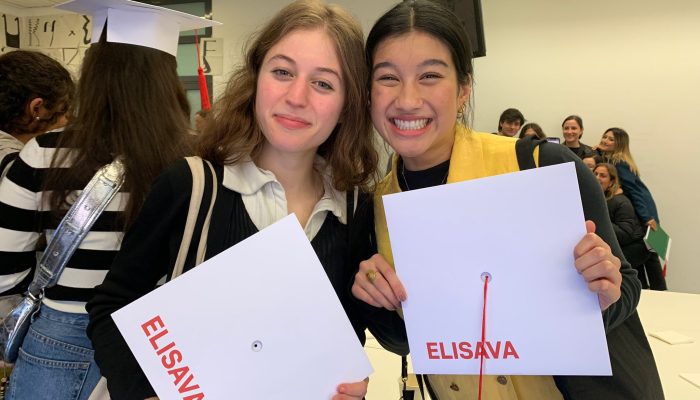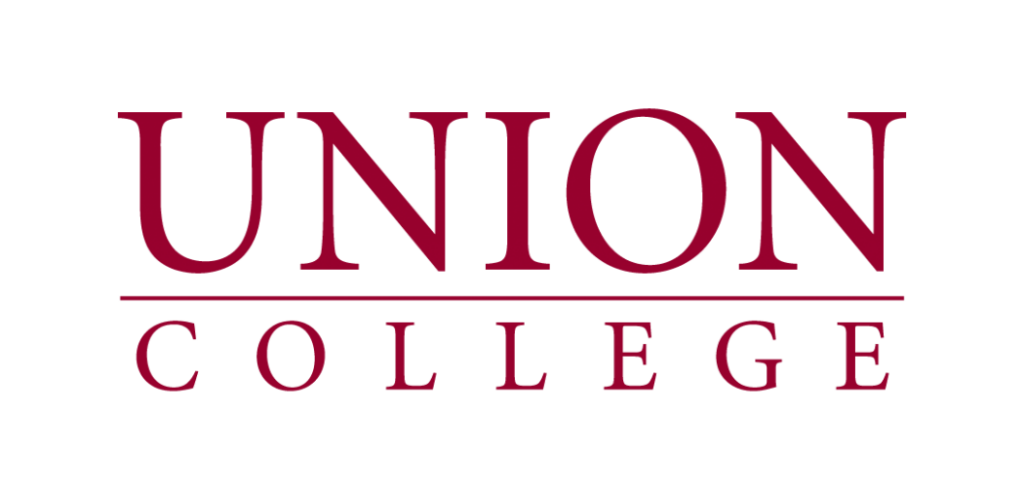A Background on Scholarships for Ethnic Minorities in Study Abroad
In this article, we discuss financial aid and scholarships for “minority” students in the United States to facilitate their participation in studying abroad.
This article is primarily for college-aged students who seek an international educational experience as part of their undergraduate studies.
Keep in mind that some of the scholarship and funding opportunities mentioned herein are not explicitly for minority students. Still, most of them have stated goals to support minority and first-generation students.
[visualizer id=”17659″ lazy=”no” class=””]
So, who are we calling a minority student?
“Minority” can have a range of meanings, so let us clarify. Historically, this term has referred to ethnicity, and non-white populations have been under-represented in studying abroad.
This trend has begun to change in recent decades, as both families and educational institutions have prioritized improving opportunities for students of minority ethnic backgrounds. However, there is still work to be done.
This article uses the term broadly to refer to underrepresented groups in higher education and study abroad.
The term “minority” for many can also now include students who identify as one of the LGBTQ+ identities.
While these students may be Caucasian, many have felt excluded or have been apprehensive about traveling abroad. As with ethnic minorities, educational institutions now seek to enhance their inclusivity in study abroad participation.
Some organizations support “minority” students and first-generation students, regardless of ethnicity or gender.

Besides scholarships, what other issues should minority students consider when studying abroad?
Safety first!
Before entering into financial considerations, students of various ethnic backgrounds and those in the LGBTQ+ community understand that they will want to do some additional research to choose a destination for study abroad.
Places with extreme hostility to certain races or ethnicities are not ideal. Nor are locations where LGBTQ+ students may face a heightened risk of verbal or physical attacks.
Study abroad professionals cannot wholly control prejudice and discrimination, but we recommend that you meet with your campus study abroad office to discuss your concerns and safety.
They have encountered these situations before and may have some recommendations for you to consider. You may also wish to do some reading of materials provided by sites such as www.diversityabroad.com.
Consider options with your family and your campus international education team. For all programs in study abroad, it is valuable to start about a year in advance to consider all the financial, academic, and personal aspects involved.

Beyond safety and funding, what other issues do minority college students need to consider to study abroad?
Remember, these are academic programs, so you will want something that works with your college area(s) of study. Meet with your academic advisor and see what programs your university supports.
Planning at least a year in advance can ensure that a study abroad semester – for example – provides you with classes that you need for a major or minor.
So, what about finding funding? Are there many scholarships available?
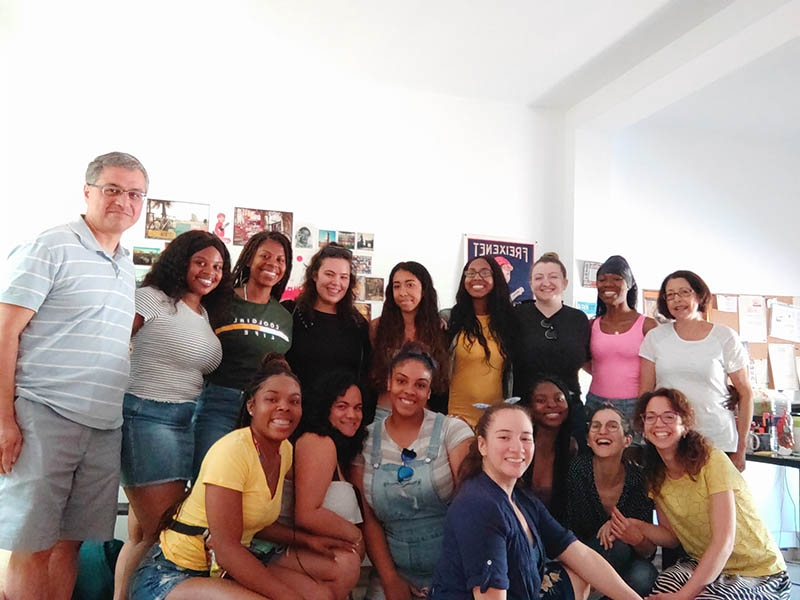
The first step is to look at your finances and determine if you have a gap in resources needed and how large that gap is.
As part of considering the right program and destination for you, staying realistic about a study abroad program is vital.
Even at colleges with generous financial aid, a semester abroad will probably be more expensive than staying on your campus.
While additional scholarships are available for minority students, resources are limited, and many people compete for the same funds.
So, don’t expect to find scholarships that fund all or nearly all of your studies. That is great if you see such an opportunity, but expecting as much may be unrealistic.
Start at your campus.
There are few ways to earn a study abroad scholarship that fully funds your study. All students need to look at various sources.
Find out what your campus has for study abroad scholarships and financial aid. Some colleges let you use your financial aid package for one study abroad semester and have some additional scholarship funds available for any student to apply for.
Let’s say that you have a $5,000 financial aid package and that the study abroad semester that interests you is $16,000. Maybe your college has a $2,500 automatic grant for students with a high GPA like you. Now your program has been reduced to $8,500 (plus transportation).
Start working on ways to help finance that remaining $8,500 and be prepared to deal with applications for grants. Do fundraising and find that part-time or summer job to help you save.
In addition to regular financial aid, many colleges have additional grants available for underrepresented students to study abroad. Don’t look at national funding bodies until you’ve researched support provided by your institution through standard financial aid and any scholarships for minority students.
Can my study abroad provider help me as a minority student?
In many cases, yes. Study abroad providers are committed to improving diversity and inclusion in study abroad programs from the USA. Many of them have some funds reserved for underrepresented students from partner universities.
For minority students attending Spanish Studies Abroad programs, we award up to $1,500 for study abroad semesters and $500 for Summer programs.
Keep in mind that study abroad providers do not have unlimited resources, and they do not fund programs outside of their own.
While studying abroad has historically been associated with caucasian students, in the last 20 years, the number of students of diverse backgrounds has increased.
Study Abroad Scholarships for Ethnic Minorities

As a reference tool, below, we compile some opportunities for students to investigate and apply for scholarships. Some of these are available to all US students, but many are geared explicitly to underrepresented communities.
Remember that the Gilman scholarship is not limited to students with protected status. Still, as the most significant funding body for study abroad, many minority students benefit with grants up to $5,000.
Best Study Abroad Scholarship for African American Students
For students at an HBU has an excellent offer to attend one of its programs.
School for International Training
- Scholarship: SIT Robert Kantor Memorial Scholarship
- Requirements: Must attend an HBCU and demonstrate financial need
- Award: 1 award is granted for $10,000
- How to Apply: Click here
- Deadline: Varies
Best Study Abroad Scholarship for Hispanic / Latinx Students
Hispanic Association of Colleges & Universities (HACU) – AIFS scholarship
- Scholarship: Up to 50% off a study abroad program
- Requirements: Hispanic students who attend a HACU member institution are eligible.
- Award: Can be up to 50% off a study abroad semester or summer program.
- How to Apply: https://secure.aifsabroad.com/College/Account
- Deadline: March each year
Study Abroad Scholarships for Diversity and Inclusion (African-American, Hispanic / Latinx, LBGTQ+, Indigenous, Asian-American, and First-Generation students)
Semester At Sea
- Scholarship: Inclusive Engagement Scholarship
- Requirements: Recipients choose from two tasks during their semester at sea: community outreach, mentoring “Interport” students, running an affinity group, assisting with social media, participating in Vicarious Voyage Program, or writing articles.
- Award: $5,000 plus flights
- How to Apply: Apply through the general program application.
- Deadline: Rolling admissions
American Institute for Foreign Study
- Scholarship: AIFS Diversity Achievement Scholarship
- Requirements:
- Award: $5,000 for AIFS semester programs
- How to Apply: Download the application.
- Deadlines: April 15 and October 1
Diversity Abroad
- Scholarship: Diversity Abroad Overseas Ambassador Program
- Requirements: Students share their experiences through articles, social media posts, and videos while on their study abroad program. Preference for students of minority background (broad definition) who are economically disadvantaged
- Award: $500 stipend for a semester.
- How to Apply: https://www.diversityabroad.com/scholarships
- Deadline: Not listed
Fund for Education Abroad
- Scholarship: Fund for Education Abroad scholarships
- Requirements: US undergraduate. Preference is given to minority and first-generation students.
- Award: Varies
- How to Apply: Click here.
- Deadline: January
CET Academic Programs
- Scholarship: Diversity and Inclusion Scholarship
- Requirements: Awards are only for CET program students. The scholarship is awarded to first-generation college students and students from racial/ethnic minority groups.
- Award: $1,500 (summer) to $2,000 (semester)
- How to Apply: Click here.
- Deadline: Varies by program
DIS (study abroad programs in Scandinavia)
- Scholarship: DIS offers various levels of support for merit and diversity.
- Requirements: Minority students can apply for diversity scholarships
- Award: Varies depending on program and award
- How to Apply: DIS students can apply through this link.
- Deadline: Diversity scholarships are awarded on a rolling basis.
American University in Cairo (AUC)
- Scholarship: Fund for Education Abroad (FEA); funds are used for under-represented populations doing study abroad summer programs, semesters, or academic years.
- Requirements: Must be approved by FEA
- Award: $1,250 (summer), $5,000 (semester) and $10,000 academic year.
- How to Apply: https://fundforeducationabroad.org/apply/instructions/
- Deadline: Typically in mid-January
Study Abroad Scholarships for Minorities and Non-Minorities
United States Department of State
- Scholarship: Critical Language Scholarship
- Requirements: US undergraduate students take intensive Summer study in key languages. The scholarship is based on academic merit.
- Award: Full scholarship
- How to Apply: CLS website
- Deadline: November of the prior year
FIE: Foundation for International Education
- Scholarship: FIE has various scholarships for its programs in London and Dublin.
- Requirements: Students are selected based on their application, essay, and recommendations.
- Award: $1,000 to $5,000
- How to Apply: Click here.
- Deadline: Varies by program
The Intern Group
- Scholarship: Grants are given to applicants of The Intern Group.
- Requirements: It’s based on the strength of the application and is for students of any nationality.
- Award: Varying amounts.
- How to Apply: Start here.
- Deadline: April each year
Fund for Education Abroad
- Scholarship: The Fund for Education Abroad has scholarships for differing constituencies. Read over each and see if you might want to compete for any of them.
- Requirements: Awards are based on academic merit.
- Award: Varying amounts.
- How to Apply: Click here.
- Deadline: January each year
Institute of International Education
- Scholarship: Benjamin A. Gilman International Scholarship Program (US Department of State, administered by IIE)
- Requirements: Must be a US undergraduate eligible for the Pell Grant (income level based)
- Award: $5,000
- How to Apply: Click here.
United States Department of State
- Scholarship: Critical Language Scholarship
- Requirements: US undergraduate students take intensive Summer study in key languages. The scholarship is based on academic merit.
- Award: Full scholarship
- How to Apply: CLS website
- Deadline: March or October
Boren Language Scholarship
- Scholarship: Boren Language Scholarship (language study awards related to “national security”) for US undergraduates.
- Requirements: Awards are based on academic merit.
- Award: Up to $25,000 for 52 weeks abroad
- How to Apply: Click here.
- Deadline: March 1
Conclusion
The US higher education population that studies abroad has never been more diverse. Part of that is due to efforts at diversity and inclusion by colleges, study abroad providers, and funding bodies. Start planning and achieve your goal of seeing part of the world through international education.


